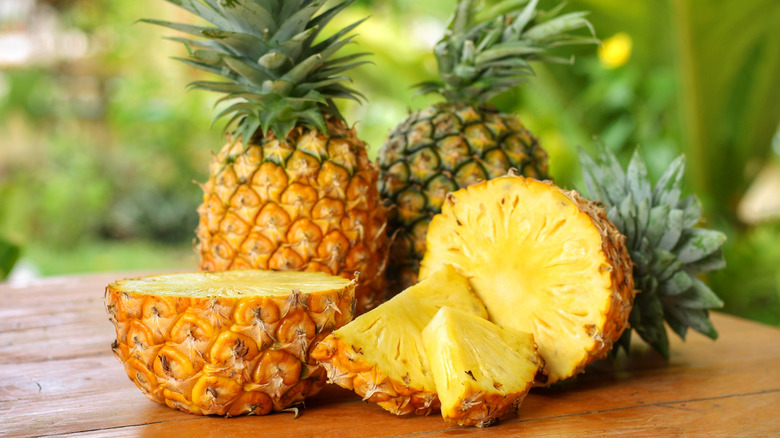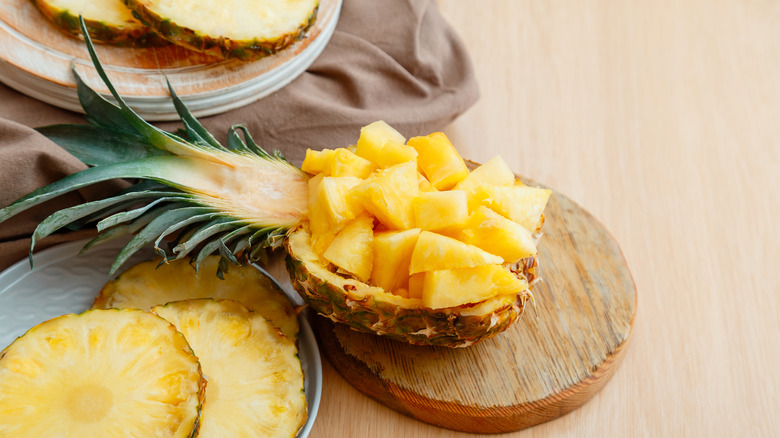
Many people enjoy pineapple for its sweet and tangy taste. This tropical delight can be eaten raw or blended into smoothies and drinks. However, consuming too much pineapple can lead to adverse side effects that you might not experience with other fruits. Have you ever noticed your tongue feeling odd after indulging in a lot of pineapple? This is due to an enzyme called bromelain, which has tenderizing properties (via Livestrong). Bromelain can irritate your mouth and stomach if consumed in excess.
“Since pineapple is an excellent meat tenderizer, eating too much can cause tenderness of the mouth, including the lips, tongue, and cheeks,” explained San Diego-based nutritionist Laura Flores to Live Science. “However, [it] should resolve itself within a few hours.” Excessive bromelain can also lead to rashes, vomiting, and diarrhea. It may interact with certain medications such as antibiotics, anticoagulants, blood thinners, barbiturates, and others. If you experience any adverse reactions after consuming pineapple that don’t subside within a few hours, seek emergency medical attention.
Pineapple is beneficial in small quantities

Pineapple is packed with vitamins and minerals. However, even these should be consumed in moderation. “Due to the high vitamin C content in pineapples, consuming large amounts may lead to diarrhea, nausea, vomiting, abdominal pain, or heartburn,” Flores told Live Science.
Nonetheless, pineapple can be a healthy addition to your diet if eaten sparingly. Apart from being rich in vitamin C, this fruit is a good source of thiamin, vitamin B6, folate, manganese, and potassium (via Medical News Today). These vitamins and minerals can help lower the risk of high blood pressure, diabetes, and certain cancers. Pineapples are high in fiber and water, which can aid digestion. Bromelain also assists digestion by helping the body break down food more efficiently.
Underripe pineapples are toxic to humans, so it is crucial to choose a ripe fruit to enjoy it raw. Opt for a pineapple with vibrant green leaves, indicating its freshness. Underripe pineapples will feel rock hard when squeezed, so select one that yields slightly to pressure. A ripe pineapple will also have a sweet aroma, especially near the bottom of the fruit.




